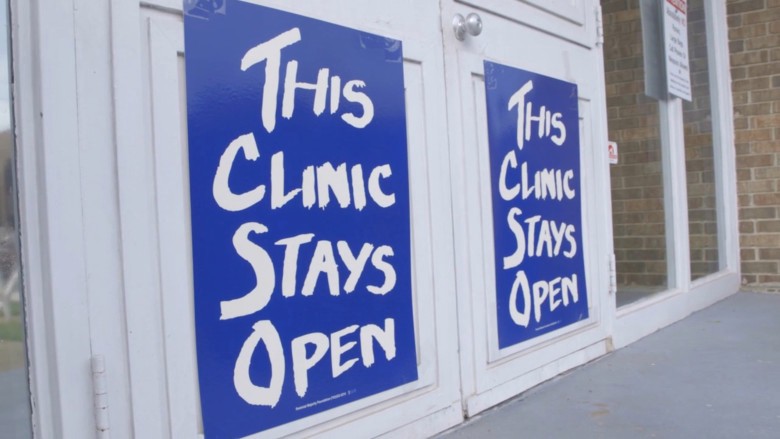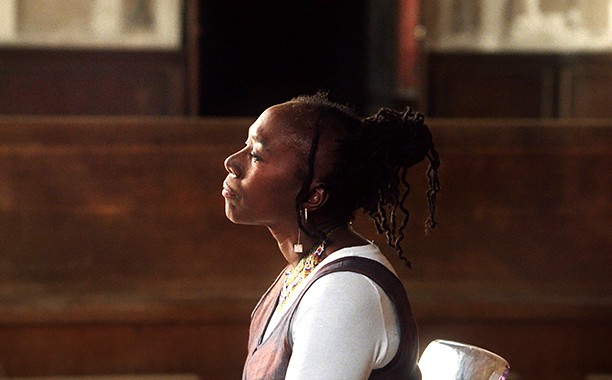
So many standout documentaries by and about women have been released this year. The films that follow are just some of our many favorites. These award-winning docs explore political scandals, legal injustices, and incredible underdog stories. A number of these titles also appear on the Academy’s shortlist for Best Feature Documentary, so get ahead of the curve and check them out before Oscar nominations are announced January 24.
“Southwest of Salem: The Story of the San Antonio Four” — Directed by Deborah Esquenazi
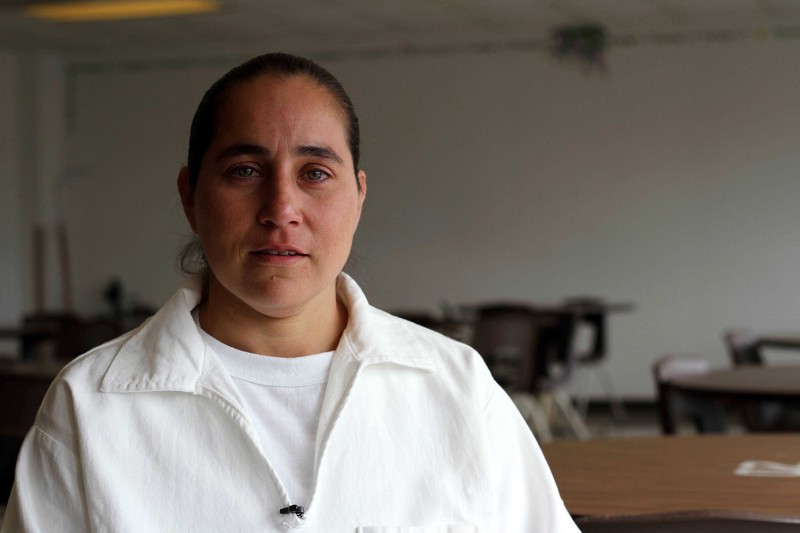
“Southwest of Salem: The Story of the San Antonio Four” is a sobering reminder of the failings of the justice system and the ways that prejudice can ruin lives. The film centers on four Latina lesbians who, on the tail end of the panic surrounding Satanic Ritual Abuse, were unjustly accused and convicted of raping two young girls in 1994.
As director Deborah Esquenazi told Women and Hollywood, the doc “is fast-paced with several plot twists. A lot unfolds in this emotional film. Yet, my hope is that [viewers] will catch some of the underlying mythologies and intersectional themes that play out underneath it all, particularly in the way in which the women were portrayed by overzealous prosecutors and how they were represented during a cultural hysteria — the Satanic sexual abuse panic of the 1980’s and 1990’s,” she explained.
Though the film ends on an uplifting note — the four women are exonerated and walk free — it still leaves audiences with the chilling questions of how this could have happened in the first place and how could it take so long for these women to go free.
“Weiner” — Co-Directed by Elyse Steinberg
“Weiner” follows (former) Congressman Anthony Weiner in the wake of “Weinergate” (in 2011, sexually explicit photos and texts Weiner sent to female Twitter users were leaked). Weiner, who is married to Huma Abedin, a long-time Hillary Clinton adviser, resigned from office. (Abedin and Weiner announced their separation this August.)
“The punchline is true about me. I did the dumb thing — but I did a lot of other things too,” Weiner says in the doc. His decades-long career fighting for progressive causes was immediately overshadowed by the headline-making drama. In an effort to save his legacy and right his wrongs, he decided to run for mayor of New York City. Elyse Steinberg and Josh Kriegman were there to chronicle the wild journey that ensued.
Weiner’s bid for office was of course derailed in July of 2013 when he was caught engaging in the exact same type of online behavior that sabotaged his career two years prior. Steinberg and Kriegman’s unprecedented access offers audiences insight into how Weiner’s campaign fell apart in such an apocalyptic fashion.
“I was excited to tell a more nuanced and complex story of a person who had been reduced to a caricature and punchline,” Steinberg told Women and Hollywood.The feature took home the U.S. Documentary Grand Jury Prize at Sundance earlier this year where it had its world premiere. The honor is well-deserved: While “Weiner” is spectacularly entertaining, it’s also difficult to watch at times, and the filmmakers miraculously manage to make Weiner someone that you can empathize with. (Well, if not empathize with, someone you can pity.)
“The Eagle Huntress”
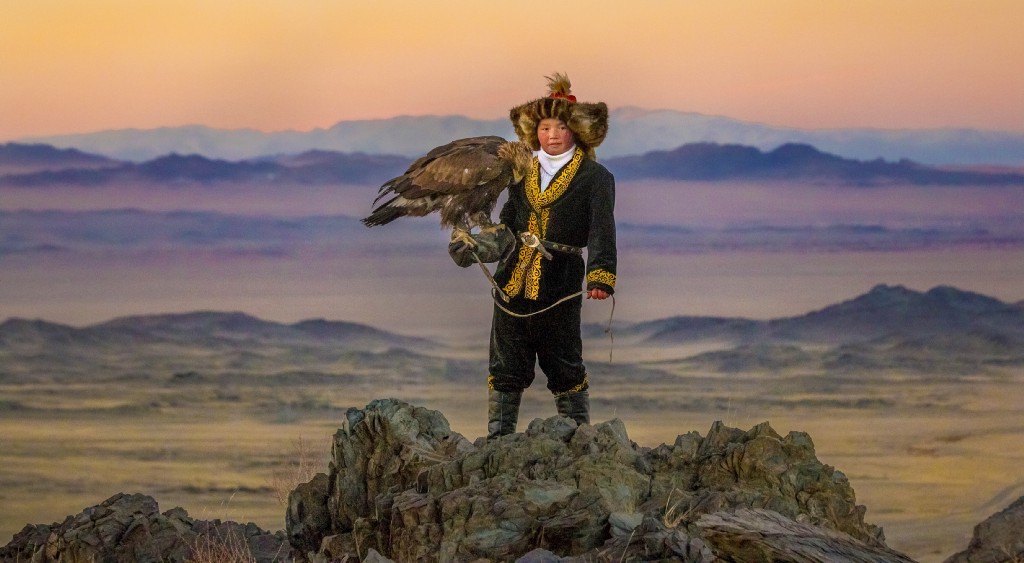
Girl power forms the heart of “The Eagle Huntress,” a fairy tale-esque story of how a young girl’s determination and talent take her exactly where she wants to go. Aisholpan, a 13-year-old Mongolian girl, longs to be an eagle hunter, like her father and grandfather before her. However, eagle hunting is considered a male-only tradition, and as Aisholpan trains her way to greatness she faces dismissive elders and men who think she cannot possibly compete or hunt as well as their sons can. What follows is an empowering journey narrated by “The Force Awakens’s” Daisy Ridley. The doc illustrates how nothing can stand between this amazing young girl and her goals, and celebrates the power of her determination.
“Cameraperson” — Directed by Kirsten Johnson
“Cameraperson” is a curated collection of extraordinary footage that Kirsten Johnson has assembled over her 20 year career in the industry, working primarily as a cinematographer. The doc is unnarrated and transports viewers to international locations as varied as a remote village, war zone, and an abortion clinic. “Cameraperson’s” most harrowing scene takes place in an underfunded, understaffed Nigerian hospital where a newborn baby struggles to survive. The doc also includes footage of Johnson’s mother, who is shown struggling with Alzheimer’s Disease.
“One of the reveals of making ‘Cameraperson’ is that each filmed moment is actually an on-going series of relationships,” Johnson has said. “This extends into each time a film is watched by another person in a different place at a new moment in history.” Johnson’s visual memoir keeps these relationships alive, and allows audiences to access and experience snippets of her fascinating, painful, and beautiful personal and professional history.
“Audrie & Daisy” — Co-Directed by Bonni Cohen
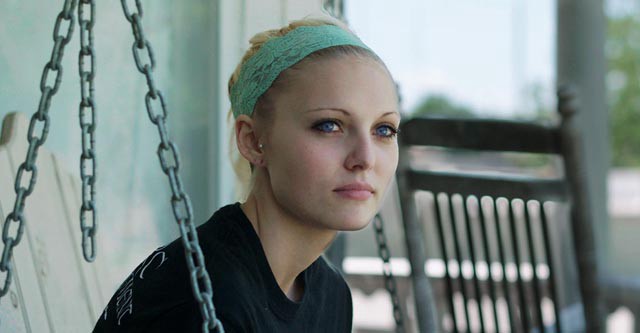
“Audrie & Daisy” chronicles the lives of two underage teen girls in the aftermath of being sexually assaulted and having the awful crimes committed against them caught on camera. Rather than eliciting anger and disgust on their behalf, evidence of their horrific treatment leads to the girls being bullied mercilessly, particularly online.
“I read about Audrie Pott in the newspaper and was devastated to read that boys had taken pictures of her naked body and shared them,” Bonni Cohen, the film’s co-director, told Women and Hollywood. “It was a new, scary twist on social-media use.” She explained, “I wanted to explore how it was that teenage boys thought this was okay, that it was a joke, that it wasn’t a crime to take pictures of a naked 15-year-old girl who was drunk and incoherent. [My co-director Jon Shenk and I] discovered that Audrie’s story was one of a number of cases around the country where there was a sexual assault, followed by social-media bullying. I wanted to dig deeper to find the human story.”
“Audrie & Daisy” absolutely digs deeper, offering a heart-wrenching look at the toxic, deadly effects of rape culture and cyberbullying.
“The Bad Kids”
High school principal Vonda Viland proves that you don’t have to be a superhero to serve as an inspiration and change the world. Viland is at the center of “The Bad Kids,” filmed at Black Rock Continuation High School, an alternative school in an impoverished Mojave Desert community. Students enrolled at the California school have fallen behind in credits and no longer have a chance to graduate from a traditional high school. Black Rock is their last chance to get a degree. And Viland, the principal of Black Rock, is determined to help them make it count.
“The Bad Kids” is a beautiful testament to the power of resiliency. These kids have been through a lot — including sexual abuse, teen pregnancy, and drug issues — but they continue to fight, tooth and nail, for their futures.
“I have a philosophy of life that I tell to the kids and the teachers every day, Viland told Women and Hollywood: “‘Choose to have a good day.’ I tell them, excuse my language, ‘Shit is going to happen in your life. You’re going to choose how you react to it. You’re going to be successful and conquer all those things or you’re going to be a victim. So you’ve got to choose what your day is going to be like.’” Watch “The Bad Kids” to see an amazing leader in action, and the next generation of leaders stepping up to the plate.
“Trapped” — Directed by Dawn Porter
“Trapped” takes its name from the hundreds of “TRAP” (Targeted Regulation of Abortion Providers) laws which have been passed by conservative state legislatures — the constitutionality of which was determined by a landmark Supreme Court earlier this year. Fortunately, as The Huffington Post reports, the Supreme Court “invalidated [the] two Texas provisions that would have closed at least seven of 17 abortion clinics in the state, saying that neither provision had a positive effect on women’s health, and that both existed primarily for the unconstitutional purpose of restricting access to abortion.”
“Trapped” made its world premiere at Sundance in January, where it won the U.S. Documentary Special Jury Award for Social Impact Filmmaking. Director Dawn Porter told Women and Hollywood that she wants “Trapped” to show audiences “that they cannot be complacent.” She added, “I love the line from one of the clinic owners, who says something to the effect of, ‘No one thinks they are going to need an abortion.’ I want people to think about what they would do if the clinics around them were closed.”
“Trapped” made its world premiere at Sundance in January, where it won the U.S. Documentary Special Jury Award for Social Impact Filmmaking. The informative and emotional doc includes revealing interviews with abortion providers and those seeking abortions, and serves as a harsh wake-up call for anyone who thinks the struggle for reproductive rights is even close to over.
“13th” — Directed by Ava DuVernay
Ava DuVernay’s “13th” is essential viewing. The powerful documentary points to the differences in the ideals versus realities of how progressive the U.S. has become since the ratification of the 13th Amendment. The feature links slavery to systematic suppression of minorities and mass incarceration. Viewers are given insights tracing from the end of the Civil War era to modern day injustices through interviews with journalists, politicians, activists, and archived video and audio clips.
“It’s been a topic that I’ve always thought about, even when I was a little girl,” DuVernay shared with Women and Hollywood. “Growing up in Compton, there was a heavy police presence. I would always see cops on my block. The interactions weren’t positive, as I’d see officers interacting with the citizens in my community. Much more negative encounters than positive, which I think is interesting.” She elaborated, “As a child, when I think back, most folks in this country who don’t live in black or brown communities regard the cops [with] a sense of safety. Imagine growing up and feeling just the opposite when you see an officer. That’s a real, completely different way to move through the world.”
“13th” proves that we haven’t progressed as much as we’d like to think — oppressive legislation is merely better disguised. The doc serves as a call to action, especially for viewers who may not realize that many of their fellow Americans move through the world much differently than they do.
“Dark Horse” — Directed by Louise Osmond
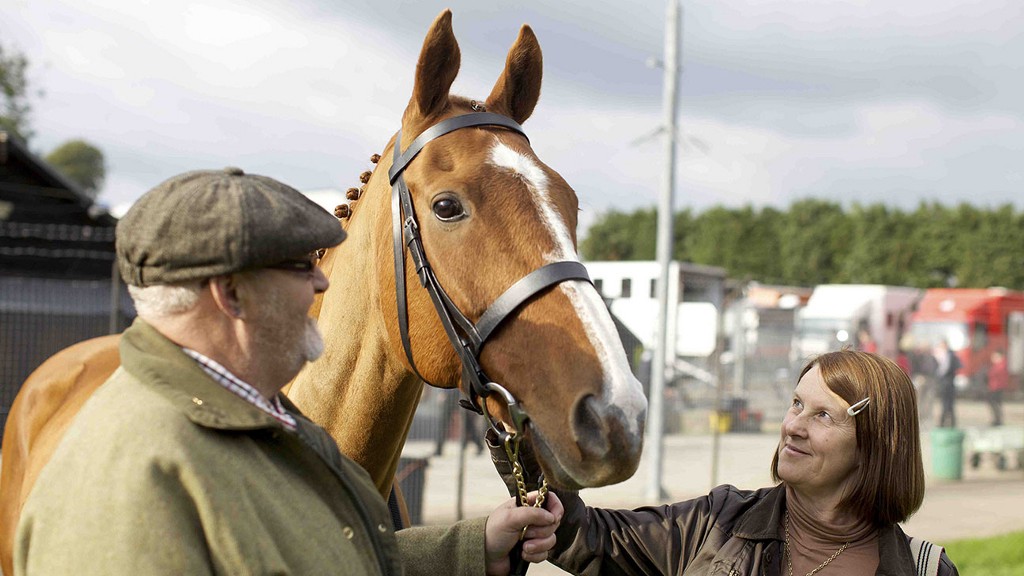
This is an underdog story you won’t want to miss. The documentary, which won the World Cinema Documentary Award at Sundance, focuses on a group of friends in Wales who worked together to breed a racehorse. The working-class and unemployed band of buddies from a small mining community formed a syndicate of racehorse ownership to infiltrate the elite (and expensive) sport. Each owner chipped in to the costs. They named the horse Dream Alliance, a nod to their collective efforts and shared dream.
“I knew the first time I heard this story that I would do pretty much anything to make it [into a documentary],” director Louise Osmond told Women and Hollywood. “It was so funny and moving and life-affirming; a classic rags-to-riches tale.”
“[Dream Alliance] always made me feel somebody else for the day. I wasn’t Janet the cleaner anymore. I was Janet the racehorse owner,” one of the doc’s characters explains in the film. Another owner adds, “It’s elation when you can do something — particularly when no one gives you a chance.”
“Dark Horse” is a joy to watch — you can’t help but be swept away by Dream Alliance and the charming band of friends behind the horse’s unlikely success.
Check out more of our end of year coverage:
The Best Women-Centric Films of 2016
2016’s Best Web Series By and About Women
The Best Women-Directed Films of 2016: “American Honey,” “The Fits,” & More
